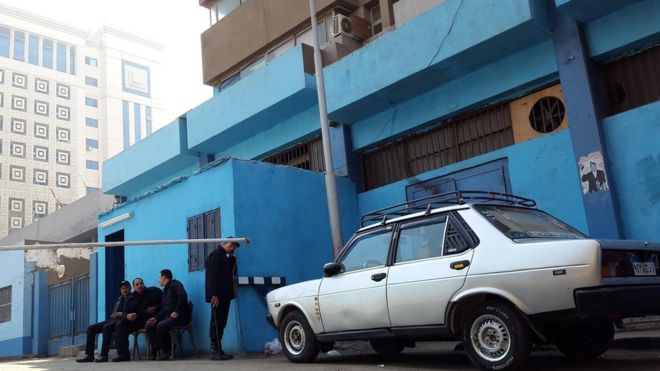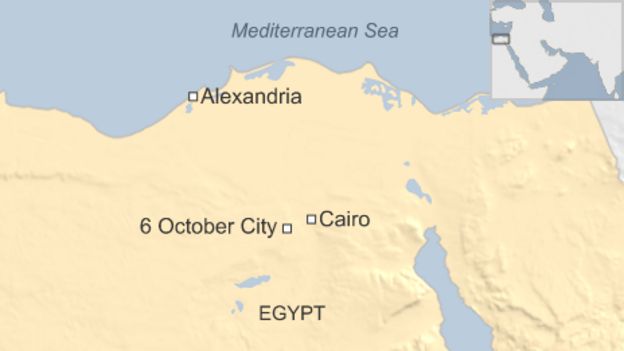
The body of an Italian student who disappeared last week in Egypt's capital Cairo has been found and shows signs of torture, officials said.
Giulio Regeni, 28, disappeared on the evening of 25 January, after leaving his home in Giza to meet a friend.
His body was found on a road on Cairo's western outskirts on Wednesday.
State prosecutor Ahmed Nagi told reporters that there were signs of torture on the body, including cigarette burns and knife wounds.
The Italian foreign ministry in Rome "urgently" summoned the Egyptian ambassador to express its concern on Thursday morning.
 AP
AP
A statement said the ministry expected "maximum collaboration at all levels in light of the exceptional gravity of what happened".
The ambassador had "expressed profound condolences" and "assured us Egypt will co-operate fully in finding those responsible for this criminal act", it added.
'Slow death'
Mr Regeni, a PhD student at the Department of Politics and International Studies (Polis) at the University of Cambridge, was a visiting scholar at the American University in Cairo (AUC).
He left his flat at 20:00 local time on 25 January, saying he planned to take the metro from Bohooth station in the upmarket Duqqi district of Giza to Bab al-Louq Square in central Cairo to meet a friend.
Italians exasperated - Julian Miglierini, BBC News, Rome
"Bewilderment" is the word used by the Italian foreign ministry to sum up its furious reaction to the conflicting versions of the circumstances of Giulio Regeni's death.
Initial reports from Egypt said his body showed signs of torture. These were then contradicted by claims that the 28-year-old might have been the victim of a traffic accident. But a prosecutor now says Mr Regeni suffered stab wounds and cigarette burns, pointing to a "slow death".
These contradictions are making headlines in the Italian media and were enough for the government to issue a harsh statement which said it had summoned the Egyptian ambassador - and urged Cairo to "immediately" launch a joint investigation to ascertain what happened to Mr Regeni.
There was a heavy police presence in the capital that day because it was the fifth anniversary of the start of the uprising against former President Hosni Mubarak.
In the run-up to the anniversary, security forces raided about 5,000 homes in Cairo, looking for anyone who might be planning to take to the streets. Several activists were arrested, while others went into hiding.
The area where Mr Regeni was going to meet his friend was near Tahrir Square, the symbolic centre of the 2011 uprising.
Late on Wednesday, reports emerged that Mr Regeni's body had been found and the Italian foreign ministry issued a statement saying his disappearance probably had a "tragic epilogue".

On Thursday, the body was positively identified by people who knew Mr Regeni, sources told AP. They said it was discovered on the Cairo-Alexandria Road in the western suburb of 6 October City.
Mr Nagi told the AP agency that the cause of Mr Regeni's death was still being investigated, but that it appeared he had suffered a "slow death".
The body was found naked from the waist down, with cigarette burns, signs of beatings and cuts to the ears, Mr Nagi separately told the Reuters news agency.
No comments:
Post a Comment